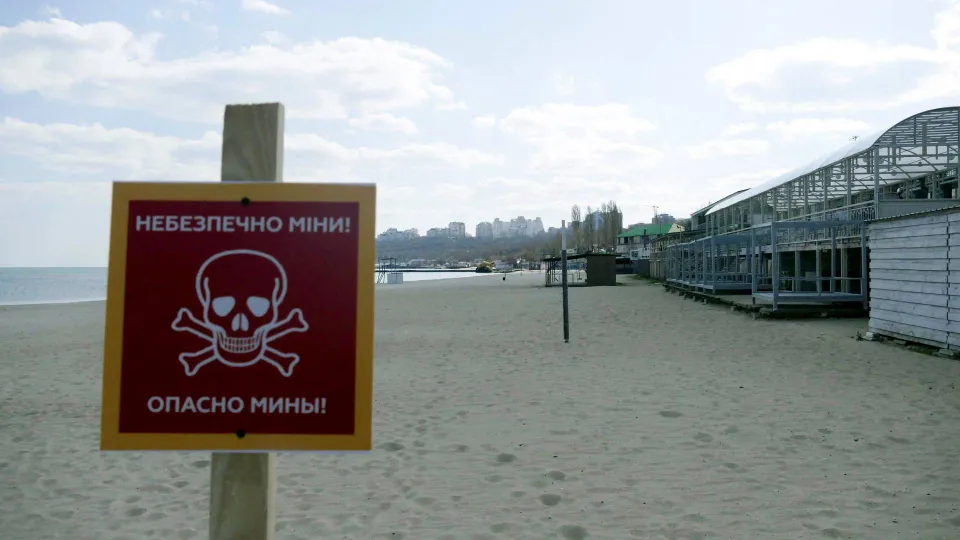It may become expensive for insurance companies that ships in Ukrainian ports are damaged or cannot leave. In general, the Ukraine war is the cause of a number of challenges in shipping, reads a new report.
Sign warning against mines in Odesa. The insurance business can expect several claims because mines have damaged or ruined ships. | Photo: /Ritzau Scanpix
The war in Ukraine will lead to a number of compensation claims for the maritime insurance industry due to damaged or ruined ships, forecasts insurance company Allianz Global Corporate & Specialty (AGCS) in its yearly report on safety and shipping.
Since the Russian invasion of its neighbouring country at end of February, two seafarers have been killed and two merchant vessels have sunk, while an additional four ships have been hit by shots.
“The insurance industry is likely to see a number of claims under specialist war policies from vessels damaged or lost to sea mines, rocket attacks and bombings in conflict zones,” states AGCS Global Product Leader, Marine Hull, Justus Heinrich in a press release.
The insurance industry is likely to see a number of claims under specialist war policies
JUSTUS HEINRICH, AGCS
He adds that insurers may also receive claims due to vessels and their cargoes being stuck in Ukrainian ports and coastal waters. According to the International Maritime Organization (IMO), 84 vessels were still unable to leave the country in late April.
According to the report, the Russian invasion of Ukraine has led to a number of challenges for shipping. Besides the loss of human lives and ships in the Black Sea, the war affects world trade, there are increased risks of cyber attacks, and the industry furthermore has to tackle the sanctions against Russia.
Sanctions a challenge
AGCS describes sanctions as a ”sizeable challenge,” as they are difficult to comply with. For instance, it can be a complicated task to determine who actually owns a vessel or cargo, and sanctions furthermore affect supply chains.
Prior to the war, crew shortages were already an issue for carriers, and Russian seafarers make up more than 10% of the global workforce, while Ukrainians represent 4%. These seafarers may have problems returning home or rejoin ships when their contracts end, it says.
An extended embargo against Russian oil can also lead to price increases on fuel and a smaller supply, which, according to AGCS, may force shipowners to use alternative fuels.
“If such fuels are of substandard quality, this may result in machinery breakdown claims in future,” writes AGCS.






